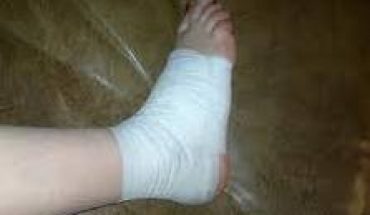Appendicitis is an infection that affects the appendix. The appendix is a small organ which is shaped like a finger. It is connected to the large intestine and is located in the lower right side of the abdomen. Traditionally considered a useless organ, the appendix has recently been revealed to be a reservoir of good bacteria which fight against infection.
Appendicitis
In this infection the organ becomes blocked by a foreign object or an accumulation of thick mucus, feces or (rarely ) tumors. The appendix is vulnerable to infection mainly because of its location. It is found at the beginning of the colon where the small and large intestines join. When the appendix becomes infected it also becomes inflamed. This condition is painful and if it is not treated urgently the appendix may rupture and trigger a major infection. This major infection is extremely dangerous and can be fatal if not treated immediately.
Appendicitis Symptoms
Appendicitis Pain
The initial indication of appendicitis is pain in the abdomen.This pain is one of the most prominent appendicitissymptoms. This pain is general rather than localized which is why it occurs anywhere within the region of the lower right abdomen. The gravity of this pain is usually indicates how severe the infection is.
This pain is distinct from all other types of pain. It travels from the belly button in a downward direction to the right of the abdomen. The pain is unlike regular abdominal aches, it is far more intense.
Appendicitis pain tends to increase with coughing or sneezing. Pain killers are unable to abate this pain satisfactorily as the only complete remedy is medical intervention. The pain may persist even after the appendix is removed.
Another common symptom is nausea and/or vomiting.
Fever is also another common symptom, some have experienced fevers ranging from 99 to 102 degrees Fahrenheit.
Other common symptoms include: abdominal pain, cramps, tenderness, swelling, Loss of appetite, diarrhea, constipation, sharp pain in the upper or lower abdomen, back, or rectum, painful urination, intense cramps, diarrhea, and inability to pass gas.
Additional Information
Appendicitis symptoms tend to intensify with time. Not everyone suffering from the condition will display or experience all appendicitis symptoms. A delayed diagnosis is dangerous for children who are below three years of age and adults who are above 60 years of age because it increases the chance for perforation in these patients.
Individuals who are facing appendicitis symptoms should temporarily abstain from food and drink. They should also avoid self medicating with pain killers or laxatives as these will further aggravate the situation. It is critical that a medical practitioner be consulted immediately as urgent and appropriate diagnosis and treatment are critical and often life saving.
It should also be noted that if the pain gets worse or unbearable across the stomach region and body temperature rapidly increases, it is probable that the appendix has ruptured. In this case you need to call emergency services immediately and rush to a hospital.





